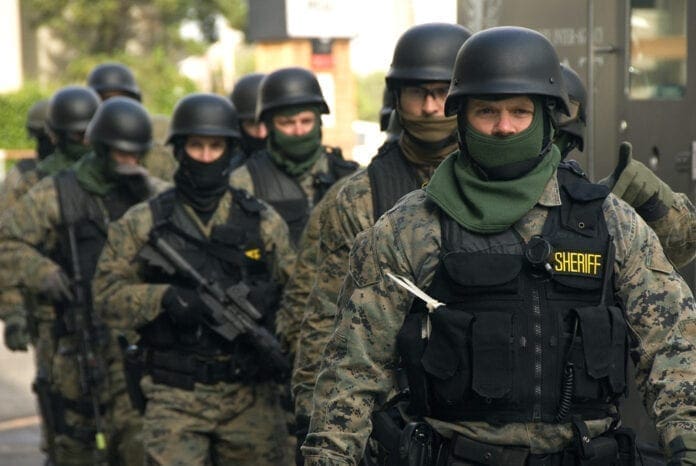What’s on my mind?
Well, for starters, a local police department was defunded. Speculation is that budget problems were the root of it, but others who have been wanting to call for defunding of police departments are wanting to claim this as a victory for their team.
Usually, I’m all for a win by default when it comes to social justice, but this one was quick and unexpected, and something tells me that because “defund the police” is an automatic trigger for opposition, it will be a hot topic for a few days.
When it comes to these conversations, people have a knee-jerk response and begin yells of opposition. The truth is … the way the police operate these days is changing. Police militarism has been ingrained into our culture. I mean, recently, the news headlines highlighted Moundsville, West Virginia, with a population of less than 9,000 residents and one of the lowest crime rates in the state, receiving a Mine-Resistant Ambush Protected (MRAP) light tactical vehicle from the Department of Defense.
What in the world does Moundsville need with a vehicle such as that? I can remember when police used to be referred to as “peace officers,” and now they’re being handed weapons of war? My ex was an engineer who, in Operation Iraqi Freedom, used these vehicles to locate IEDs (Improvised Explosive Devices). I really don’t anticipate the need for such a vehicle to arise in Moundsville, West Virginia.
No-knock orders are also part of police militarism. Breonna Taylor was shot and killed inside her home in Louisville, Kentucky, when police were said to forcibly knock on her door and enter her apartment without identifying themselves as police. Her boyfriend was licensed to carry a gun and shot police when they entered, believing that their apartment was being robbed. He was initially charged with attempted murder of a police officer after shooting an officer in the leg. Breonna Taylor was shot and killed. Although the suspects police were looking for lived miles away from where her death took place. Louisville, Kentucky,has since banned No-knock orders.
Reinvesting in Community
I don’t think any of us are surprised anymore to watch footage from peaceful protests and see the police officers dressed in riot gear and using pepper gas as well as armored vehicles. We are supposed to be protected and have our rights protected by police officers. We are not supposed to be as if we are being occupied rather than protected. Police militarism has become a common practice here in the United States.
Last week, I ran into an officer whom I’ve known for a number of years. He was talking to me about how people want to defund the police. He has a great reputation in the community, having worked for years in the school system, and a lot of what people called for was to ask questions about available resources, such as feeding sites and programs and things that police aren’t necessarily aware of.
I told him that I wasn’t necessarily talking about defunding the police force as much as looking at the benefit of reinvesting some of the money in community social services. We talked about how a social worker or crisis worker would be better capable of handling a call about suicide than a police officer. I pointed out that maybe it would be better for everyone if someone familiar with addiction handled overdose calls.
He admitted that it would be better.
Defunding the police means that monies would be put back into our communities, especially marginalized communities. The money could be put toward funding social service programs, housing, and mental health programs, for example. Data is collected that demonstrates that most police calls are for nonviolent incidents. And most calls start with a conversation. Police now handle calls for what seems to be any problem, whether that’s a big hole in the road or a kitten stuck in a tree.
Small Towns, Too?
I don’t see any reason why we shouldn’t explore reinvesting funds into our communities to stop the problems in their tracks that require police intervention in the first place.
There is a huge difference between defunding police and disbanding the police. The movement is catching on across the nation. Los Angeles has committed to cutting the police budget by $150 million. San Francisco’s mayor has committed to do the same, as well as Baltimore. Other cities have defunded police departments years ago and invested in mental health teams instead that have proven to be extremely successful.
If our nation’s largest cities can commit to investing in communities rather than into police departments, we, in our small cities and towns, can begin to have a conversation about how this would benefit the community as a whole.
Just because it’s never been done doesn’t mean it’s wrong.
Onward,
Amy Jo


